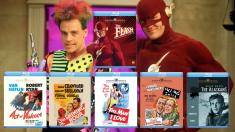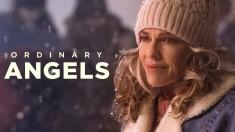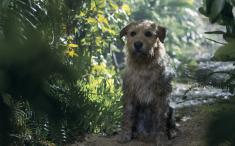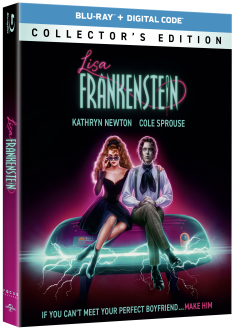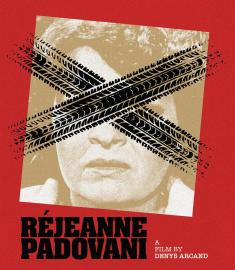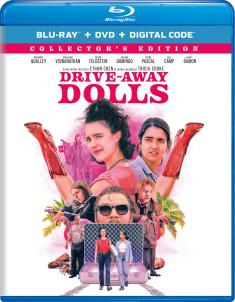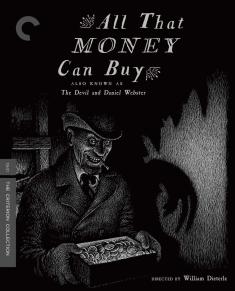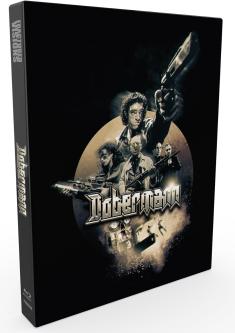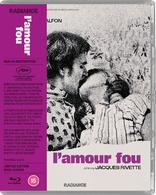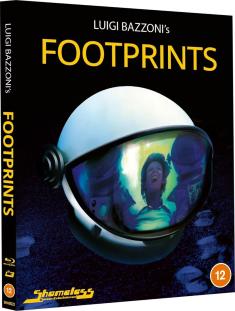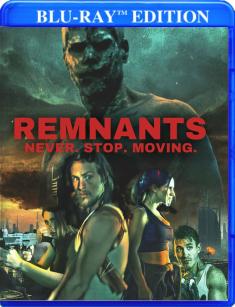Rebecca - Criterion Collection
Overview -
Romance becomes psychodrama in Alfred Hitchcock’s elegantly crafted Rebecca, his first foray into Hollywood filmmaking. A dreamlike adaptation of Daphne du Maurier’s 1938 novel, the film stars the enchanting Joan Fontaine as a young woman who believes she has found her heart’s desire when she marries the dashing aristocratic widower Maxim de Winter (played with cunning vulnerability by Laurence Olivier). But upon moving to Manderley—her groom’s baroque ancestral mansion—she soon learns that his deceased wife haunts not only the home but the temperamental, brooding Maxim as well. The start of Hitchcock’s legendary collaboration with producer David O. Selznick, this elegiac gothic vision, captured in stunning black and white by George Barnes, took home the Academy Awards for best picture and best cinematography.
Storyline: Our Reviewer's Take

"Last night, I dreamt I went to Manderley again..."
Like the unnamed heroine who recites one of literature's most famous opening lines, moviegoers have returned to the grand estate of Manderley countless times over the past seven decades. And like the dead titular figure whose spirit oozes from its every nook and cranny, Rebecca continues to haunt and fascinate us well into the 21st century.
And with good reason. Forget the enticing air of mystery and romance that swirls around the characters and the psychosexual underpinnings that consume them. Rebecca is a notable film for a number of other reasons. First and foremost, it marks director Alfred Hitchcock's American debut and producer David O. Selznick's first release after Gone with the Wind. It also stands as the only Hitchcock movie ever to win the Best Picture Academy Award. Yet despite such notoriety, this faithful, often riveting adaptation of Daphne Du Maurier's bestselling novel often gets left out of critical discussions and assessments of Hitchcock's work. And that's a shame, because Rebecca brims with the same amount of style, tension, nuance, humor, and romance that distinguish so many great films by the Master of Suspense. Its heroine may not be blonde, but she resembles innumerable Hitchcock women who begin as shrinking violets and blossom into strong, substantive, mature individuals. Its plot also stands the test of time, featuring inspired twists and turns, as well as a deceased, never-to-be-seen character whose palpable presence looms over the entire movie, influencing the action and shaping all who fall under her spell.
Though its presentation may be largely traditional, Rebecca remains one of those rare motion pictures that reveals new treasures with each viewing. Subtle themes, bits of technique, and delicate performance touches warrant continued examination. Is it a classic Hitchcock film in the most literal sense? Perhaps not. Many have argued Selznick's constant meddling and more polished, opulent vision of the material stymied Hitchcock's creativity and tainted the production, which some believe bears the stamp of Selznick more than Hitchcock. Yet the feel of Hitchcock still permeates the entire movie. Though the technical audacity that would define the director once he gained his footing in Hollywood may be absent in his first American outing, the seeds are there, and many of them flower beautifully before our eyes. Just because Rebecca is slightly less inspired from a cinematic perspective than many Hitchcock films shouldn't diminish its reputation.
Criterion's new release properly salutes Rebecca, lavishing this classic with all the attention it so richly deserves. With a brand new transfer, hefty 40-page booklet, and supplements galore, this two-disc set easily eclipses the 2012 MGM release and instantly becomes the definitive edition of a beloved film. For an in-depth look at Rebecca, check out my colleague Steven Cohen's take on the movie, written at the time of the 2012 Blu-ray release: https://bluray.highdefdigest.com/3205/rebecca.html#the-movie-itself. His feelings pretty much mirror mine.
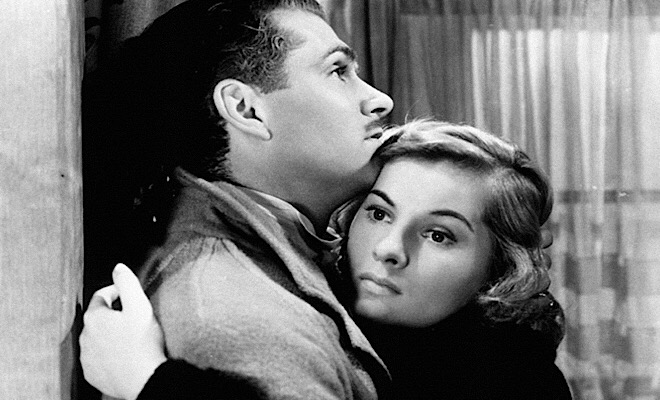
Vital Disc Stats: The Blu-ray
The two-disc Criterion edition of Rebecca arrives on Blu-ray packaged in a standard Criterion case. A beautifully appointed 40-page booklet featuring an essay by Selznick biographer David Thomson, extensive excerpts from memos between Selznick and Hitchcock regarding the film, several rare black-and-white photos, a cast and crew listing, and transfer notes is tucked inside the front cover. Video codec on the two Blu-ray discs is 1080p/AVC MPEG-4 and audio is LPCM mono. Once the discs are inserted into the player, the static menus with music immediately pop up; no previews or promos precede them.
Video Review

According to the liner notes, "this new digital transfer was created in 16-bit 4K resolution...from the 35 mm nitrate original camera negative," and it immediately supplants any other home video rendering as the definitive version of Rebecca. Perfectly pitched contrast and exceptional clarity distinguish the picture, which sports a lovely grain structure that supplies essential texture while maintaining the feel of celluloid. Blacks are deliciously lush (as evidenced by Maxim's dinner jacket and Mrs. Danvers' uniform), whites are crisp, and superb gray scale variance heightens detail levels and enhances depth. All the etchings, carvings, wallpaper patterns, lush fabrics, and delicate laces that adorn the ornate sets are perfectly defined, and images shot through sheer curtains are equally sharp. Shadow outlines and delineation are distinct (crush is never an issue), close-ups beautifully highlight Fontaine's fresh-faced complexion and tear-stained cheeks, and nary a nick, scratch, or speck of dirt mars the pristine print. Though the transfer on the 2012 Blu-ray is quite nice, this effort clearly eclipses it with richer contrast and a cleaner, more balanced image, and as a result, this 77-year-old classic looks almost brand new. If you're a Rebecca or Hitchcock fan, this edition is well worth an upgrade.
Audio Review

The LPCM mono track, which was remastered from the original soundtrack negative, supplies clear, well-modulated sound. Any age-related imperfections, such as hiss, pops, and crackles, have been meticulously erased, and a wide dynamic scale handles all the highs and lows of Franz Waxman's romantic score without a hint of distortion. Music plays consistently throughout the film, but it never overwhelms the action, and all the dialogue is well prioritized and easy to comprehend. Atmospherics like wind and rain come across cleanly, and sonic accents like fireworks are crisp and distinct. Though not particularly complicated, this track features a number of competing elements, and handles all of them with ease.
Special Features

Criterion imports a couple of extras from the 2012 Blu-ray release of Rebecca, but most of the supplements are unique to this edition. That poses a bit of a problem for those who own the previous release, so if you enjoy the audio commentary by film critic Richard Schickel, the Gothic World of Daphne Du Maurier featurette, and a couple of Hitchcock audio interviews with Peter Bogdanovich and François Truffaut, you might want to hold onto that disc. Rest assured, the extras presented here are of excellent quality and provide a wealth of insight into the film and its creators.
Disc One
Audio Commentary - Recorded in 1990 for the Criterion Collection, this commentary by Leonard J. Leff, author of Hitchcock and Selznick, is as polished as the film itself. Leff describes the making of Rebecca as "sometimes as rocky as the Cornwall coast near Manderley" due to the conflicts between Hitchcock and Selznick that plagued the production, and he documents those legendary run-ins with relish. He relates Rebecca to many other Hitchcock films, analyzes the director's technique, points out scenes Selznick reshot, identifies censorship issues, discusses various deletions and abandoned bits, explores casting, and reveals the film's excessive dialogue looping most likely cost Rebecca an Academy Award nomination in the sound recording category. Leff also details Fontaine's insecurity and how the British cast snubbed her, notes differences between the novel and its adaptation, and tries to dissect the ambiguous motivations that drive the characters. This is an excellent discussion of a rich and vibrant film, and Leff's remarks remain as relevant today as they surely were 27 years ago.
Dialogue Between Molly Haskell and Patricia White (HD, 25 minutes) - Author and film critic Molly Haskell sits down with scholar Patricia White for a lively exchange that examines Rebecca from a feminist perspective. Both women laud the film as they discuss such wide-ranging topics as the second wife syndrome, the power of an unseen presence, the movie's sexual dynamics and politics, and direct parallels to Citizen Kane. They also analyze the characters and explore the pronounced feminine sides of Hitchcock and Selznick. Haskell says Rebecca plays better today than in 1940 and defends the heavy involvement of Selznick, who often battled with Hitchcock over the film's look, pacing, and performances.
Featurette: "The Making of Rebecca" (HD, 28 minutes) - A holdover from the 2012 Blu-ray release, this retrospective featurette includes interviews with directors, film historians, and Hitchcock relatives as it touches upon the conflicts between Selznick and Hitchcock, the casting quagmire, the novel's adaptation, and how Hitchcock transitioned from England to Hollywood. Several anecdotes and a few archival comments from Hitchcock himself punch up this slick mini documentary.
Theatrical Re-release Trailer (HD, 2 minutes) - Hyperbole abounds in this re-release preview, which hails Rebecca as "the most glamorous motion picture ever made" and "the motion picture still unsurpassed for suspense and romance."
Music and Effects Track - This isolated track allows us to revel in the alternately romantic and creepy strains of Franz Waxman's music score and enjoy the nuanced audio effects without any dialogue interference.
Disc Two
Visual Effects Featurette (HD, 17 minutes) - Effects technician Craig Barron provides a comprehensive overview of the myriad visual effects that enhance and beautify Rebecca. Many are seamlessly woven into the film's fabric and include matte shots, miniatures, rear projection and subjective camera work, even puppets. Barron points out a clever processed shot, examines the intricacies of the Manderley fire sequence, introduces us to the movie's technical crew, and addresses Selznick's micromanagement in this highly entertaining and informative piece.
Documentary: "Daphne Du Maurier: In the Footsteps of Rebecca" (HD, 55 minutes) - One of the best supplements included in this package, this 2017 documentary produced for French television elegantly chronicles Du Maurier's life and work, and how the character of Rebecca haunted the author for years. Through interviews with historians and one of her daughters, we learn about her aristocratic background, sexual ambiguity, attraction to the Cornwall countryside, and the conflict between the masculine and feminine sides of her personality. This intimate portrait also examines her marriage, friendships with other women, and includes clips from a rare 1971 BBC television interview with Du Maurier herself, during which she unveils the original typed manuscript of Rebecca. Du Maurier was a fascinating figure, and this absorbing look at her colorful life enriches appreciation for her and her wide-ranging works.
Casting Gallery (HD) - Extensive casting notes from producer David O. Selznick, which outline his thoughts regarding the central female role in Rebecca, are followed by glamour portraits of a couple of dozen actresses who either tested or were considered for the part, accompanied by Hitchcock's succinct written evaluations of each one.
Screen Tests (HD, 42 minutes) - Six rare screen tests are included here (the 2012 Blu-ray only had two), and all of them are fascinating in various ways. In three separate attempts, a very young Anne Baxter models different hair and makeup, while two tests featuring Vivien Leigh pit her opposite actor Alan Marshal in one and Olivier in the other. (In the former, it's tough to divorce Leigh from her iconic turn as Scarlett O'Hara - which she had just completed - and it often seems as if she's addressing Ashley Wilkes instead of Maxim de Winter. Leigh is far better acting with Olivier, but still not at all right for the part.) Fontaine's test is also included (she does well, but grew considerably over the course of production), as are tests with Margaret Sullavan, who appears too mature, and Loretta Young, who is quite appealing and probably would have succeeded had she been cast.
Lighting and Makeup Tests (HD, 3 minutes) - Baxter, Sullavan, and Leigh model various hairstyles and makeup in these brief, silent tests that feature a few audio remarks from Leonard J. Leff.
Costume Tests (HD, 3 minutes) - Fontaine, looking sullen and fatigued, models several gowns - none of which made it into the finished film - in these silent tests.
Vintage TV Interview (HD, 17 minutes) - Fontaine appears on a 1980 episode of the talk show Tomorrow with host Tom Snyder, who interviews the actress about Rebecca, her long-running feud with sister Olivia de Havilland, and her political, social, and moral views. Fontaine appears animated and in good spirits throughout the chat, during which she shares anecdotes about gossip columnists Hedda Hopper and Louella Parsons, discusses her high regard for Hitchcock, hints at tensions between herself and Olivier during shooting, and recalls how the moguls ruled Hollywood with an iron hand.
Audio Interviews (31 minutes) - Back in the 1990s, when Leonard J. Leff was researching his book Hitchcock and Selznick, he conducted phone interviews with both Fontaine and Dame Judith Anderson. The complete Fontaine call and an excerpt from his conversation with Anderson are included here and provide additional insights into the making of Rebecca. Fontaine expounds on the technique of movie acting, admits being ostracized by Rebecca's British cast members improved her performance, complains about Selznick's constant memos, and warmly recalls Hitchcock's personality, humor, and biting sarcasm. She also learns for the first time that Hitchcock reportedly sought her services for Foreign Correspondent and Shadow of a Doubt, and believes Selznick sabotaged those opportunities. Anderson bemoans the constraints of screen acting, remembers how Hitchcock walked her through Rebecca's famous bedroom scene, and states she did not consciously suggest any lesbian tendencies in her performance as Mrs. Danvers, but certainly sees them now. She also amusingly recounts how a pesky fly disrupted shooting on the set for three hours one day, and her trepidation when she was told to wear an asbestos lining under her costume for safety reasons during the climactic fire scene. Both women are extremely forthcoming with Leff, and it's a treat to hear their recollections.
Alfred Hitchcock on Tomorrow (HD, 44 minutes) - On November 26, 1973, 74-year-old Alfred Hitchcock sat down with host Tom Snyder for a wide-ranging interview that sadly doesn't address many of his films, but allows us to drink in his colorful personality. Hitch is in fine fettle, cracking jokes, telling funny and creepy stories, and providing an extensive definition of rhyming slang. He talks about dieting and his fluctuating weight, the nature of suspense, his fear of the law, and how stupidity makes him angry. He also rues the expansion of communication and electronic media sources (what would he think today?) and expresses deep regret that the assassination scene he devised in Foreign Correspondent was tragically reenacted in real life only a few years after the film was released. Hitchcock and Snyder share a fine rapport, and the director seems to genuinely enjoy the conversation. While more movie talk would have added more relevance to the interview, this rare program is still well worth watching.
Vintage Radio Adaptations (180 minutes) - A whopping three complete hour-long radio adaptations of Rebecca are included, and all merit at least a brief sampling. The first was produced a couple of years prior to the film version and mounted by Orson Welles' Mercury Theatre company on a December 9, 1938 episode of The Campbell Playhouse. (The adaptation aired just a couple of weeks after Welles shocked the nation with his historic War of the Worlds radio broadcast.) Welles, who was unbelievably just 23 at the time (though he sounds at least a decade older) portrays Maxim de Winter with great gusto, and Margaret Sullavan is quite good as his bride. Mildred Natwick takes on the role of Mrs. Danvers, Agnes Moorehead appears briefly as Mrs. Van Hopper, and Bernard Herrmann supplies the dramatic music score. The adaptation closely follows the book, sticking to the original climax (which the Hollywood censors quickly nixed), and the broadcast concludes with scripted banter between Welles and Sullavan and a brief exchange with author Daphne Du Maurier, who calls in from London to congratulate the performers.
The second adaptation, broadcast on February 5, 1941 as part of CBS's long-running Lux Radio Theatre series, stars Ronald Colman as de Winter and Ida Lupino as his young wife. Judith Anderson reprises her role as Mrs. Danvers, and director Cecil B. DeMille hosts the program. This version is a truncated adaptation of the movie, and Colman and Lupino handle their parts with ease. Producer David O. Selznick contributes a few remarks at the broadcast's conclusion.
The final adaptation, also a Lux Radio Theatre installment, was broadcast on November 6, 1950, and allows Olivier the chance to reinterpret Maxim de Winter a decade after the film's release. His wife, Vivien Leigh (his original choice for the movie version's female lead), plays opposite him, but at age 37 her vocal timbre sounds a bit too mature for the shy young ingenue she portrays. The slick reading ends with some scripted interaction between Olivier, Leigh, and host William Keighley, during which Leigh talks about the recently completed but not yet released film version of A Streetcar Named Desire.
Final Thoughts

Rebecca is a seminal film for Alfred Hitchcock, and Criterion treats his faithful, beautifully appointed adaptation of Daphne Du Maurier's classic novel with the respect and reverence it has long deserved. This two-disc set instantly becomes the definitive home video edition of Rebecca, thanks to its gorgeous remastered transfer, excellent audio, and hours upon hours of high-quality supplements. Though patented Hitchcock touches may come at a premium in Rebecca, this riveting romantic mystery about the looming presence of a dead wife over her husband's second marriage still brims with style and artistry and features indelible performances from Laurence Olivier, Joan Fontaine, and especially Judith Anderson. Without question, this is a must own release that deserves a prominent spot on every film lover's shelf.
